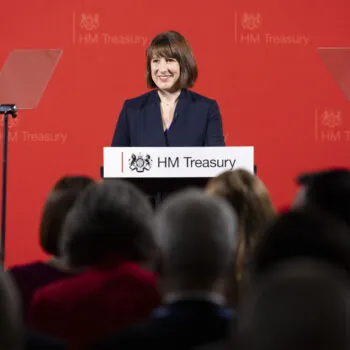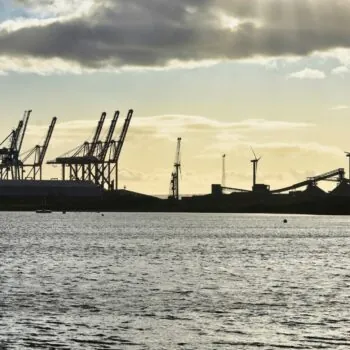Labour’s plans for green industries are critical to the UK’s hopes for economic recovery. But to really see the rewards, Labour will need to ensure working people and communities benefit.
The Green Prosperity Plan is the delivery roadmap for Labour’s mission to make Britain a Clean Energy Superpower. Perhaps more importantly, the Plan is the glue binding this energy mission to Labour’s first and foremost objective – restarting UK economic growth.
Labour’s choice of words, however, imply greater ambition than simply improving GDP figures. Growth is not enough. Labour want to deliver prosperity.
The distinction matters. Labour know the next election will be fought not just on whether the economy has improved, but whether voters feel better off than they do today. Delivering economic growth on paper alone is not enough. Labour needs to translate economic growth into visible benefits for working people and communities if they want to stay in power.
At the heart of this economic growth will be the clean economy. Low carbon sectors are growing faster than the UK economy as whole; 9% in 2023 vs 0.1% overall. The UK is now the eighth-largest exporter of green products in the world, even as it slips out of the top-ten for manufacturing overall. Whether it is electric vehicles, wind turbines, or the low-carbon steel needed to make them, the clean energy mission will create substantial new demand. The question for Labour is how to harness this growth engine to make voters feel better off.
E3G’s new case study offers some lessons on how to get it right. In this case study we share the experiences of workers in Belper, Derbyshire who previously assembled boilers – but now manufacture heat pumps instead.
The UK is home to several heating manufacturers with a long history producing gas boilers. But as the UK and other countries decarbonise, demand for these boilers will decrease and largely be replaced by low carbon heat pumps. Whilst some manufacturers see the switch to low carbon heating as a threat, others have embraced the opportunity to get ahead of the competition. This transition from fossil to clean will play out across dozens of sectors between now and 2050.
The Belper example is such a success because the benefits of green transition have been felt by both business, workers, and the local community. Investment alone may not guarantee prosperity. But secure, good quality employment does. As one Vaillant employee noted: job security means the security to buy a home, the security to keep your children in the same school, the security to turn a town into a real community. This economic security will be at the heart of making green prosperity a reality.
To ensure investment delivers these economic security benefits for working people, the UK needs to:
- Support workers through the transition – Ensure workers can access funded training and support to take on new roles
- Give workers a voice – By working with trade unions
- Improve conditions – Make sure green jobs come with matching or better pay and conditions
Above all – both workers and businesses need a clear plan which lets them prepare for the future. Even in Belper, there are challenges. Policy makers need to do more to ensure heat pumps are affordable to all, enabling greater demand from a true mass market. Policy certainty is a key ingredient for investment, and the UK needs a clearer plan for heat if the investment in Belper is to be replicated elsewhere. The UK also faces challenges relating to skills, and ensuring domestic supply chains benefit – rather than deepening reliance on overseas competitors which may not share the UK’s commitments to labour standards or environmental regulation.
Delivering on the promise of green prosperity is a tall order. Belper proves it is possible, but the UK still has some way to go. The UK lacks a strategy for supporting sectors in transition – for protecting communities and preserving economic security, even as technology and markets change. Learning from successes like Belper would be a good first step.



